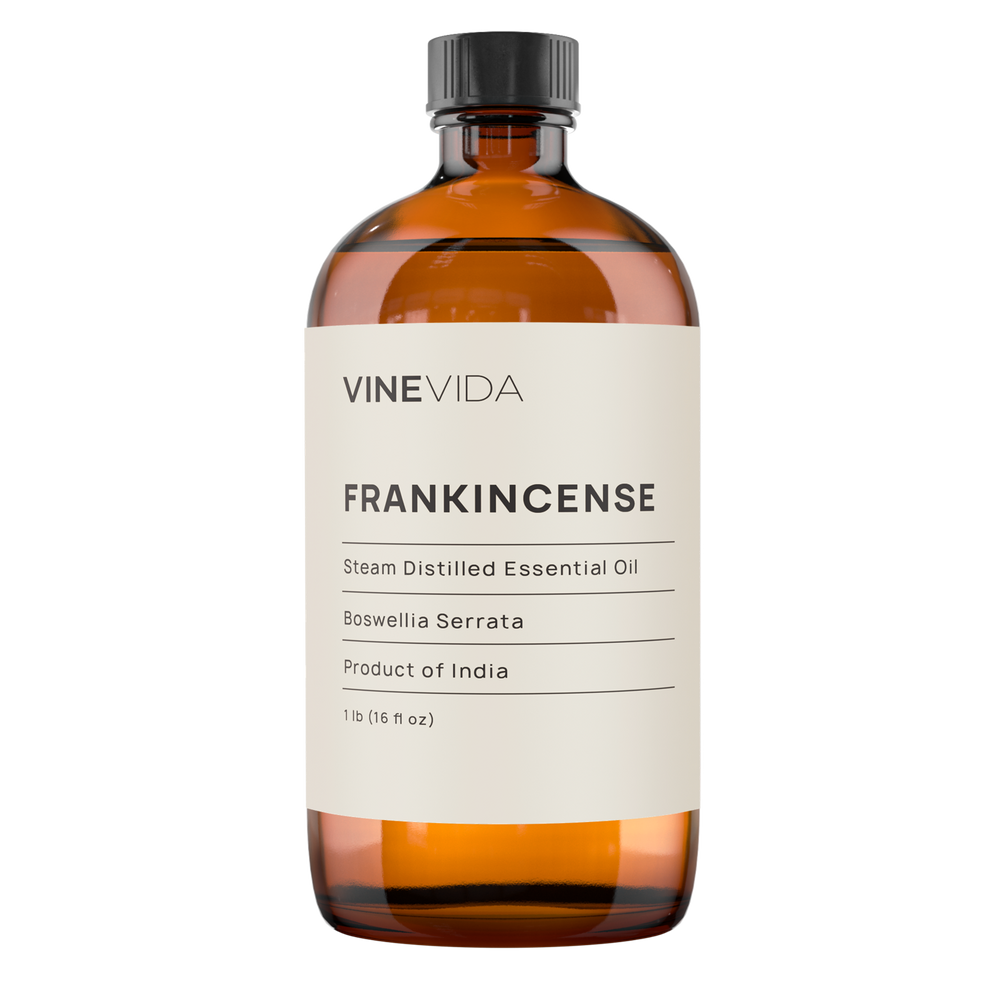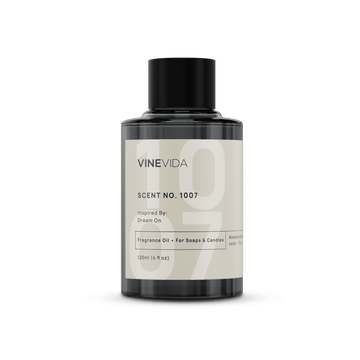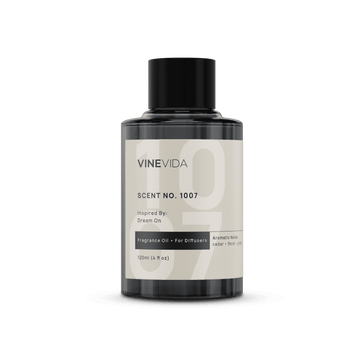The best essential oils for asthma soothe the respiratory system and calm allergic responses. Of course, it is suggested that you continue with the doctor's medication, but we have five essential oils that might make you feel that much better too.
Understanding Asthma: what is it?
Asthma causes occasional breathing problems. It is a common condition affecting around 25 million people in the US, which equates to about 1 in 13 people. Asthma is caused when the tubes that carry air in and out of the lungs become inflamed. It can often be triggered by allergies or smoke but can sometimes be made worse by stress.
The main asthma symptoms include shortness of breath, difficulty catching one's breath, and wheezing. Symptoms fluctuate and can become better or worse.
Are Essential Oils Safe For Asthmatics?
Yes, used carefully and can be soothing and helpful.
Can Essential Oils Help with Asthma: Is Any Evidence to Back up Claim?
This is a contentious question. Essential oils are not drugs. They do not carry licenses and have not been tested in clinical trials. As such, we wish to observe the FDA's medicines control laws and say that essential oils cannot "Cure" anything. Neither is any of our advice on this page meant as a substitution for medical advice.
That being said, antibiotics were invented by Alexander Fleming and Louis Pasteur in the nineteenth century. Before that, plants were the only medicines available, and many were used as herbal treatments for respiratory tract infections and breathing problems.
Today, scientific evidence is beginning to verify some herbalists' claims.
A 2010 article in the Journal "Alternative Medicine Review" states that Application by either vapor inhalation or oral route [Eucalyptus oil (EO) and its major component, 1,8-cineole} provides benefits for both purulent and non-purulent respiratory problems, such as bronchitis, asthma, and chronic obstructive pulmonary disease (COPD).
Also Read: Best Essential Oils for Allergies
What Essential Oils are Best for Asthma
1. Frankincense Essential Oil
One of the best respiratory oils there is, frankincense slows the breath. It opens the airways and makes us feel calmer. All ideal actions for the oil that ranks top of the best essential oils for asthma. It's a very comforting oil and makes you feel incredibly cozy and well cared for. Frankincense is often used in places of worship because this feeling of deep calm makes you feel so serene and connected to the divine.
Moreover, people often use frankincense for meditation and prayer for this reason. This one is among the best essential oils for asthma and COPD. The rest of the oils on this list are more about mild asthma, but frankincense works directly on the respiratory tract, slowing the breath and bringing it more into control.
2. Melissa Essential Oil
While no essential oils can cure asthma, most will act upon the symptoms. However, if your asthma has an allergenic component, and you find that things like dust, pet hairs, pollen, or chemicals affect you, you may find this oil very helpful.
Melissa is often considered one of the best essential oils for asthma, not only because it is a natural antihistamine but also because it is uplifting, calming, and soothing. If it were to have a keyword, it would be "joy." But instead, it is carefree, relaxed, and playful. Everything that asthma attacks are not!
3. Roman Chamomile Essential Oil
Have you ever seen a chamomile plant? There are lots of different types, all looking a lot like daisies. Most have long, terribly thin stems that defy all odds against the wind. Yet, they are incredibly flexible, bobbing around in the breeze and never really getting damaged by the weather.
Chamomile plants know how to deal with air. They are very flexible, standing up straight when needed, but simply rolling with the punches in the storm.
While roman chamomile is not a respiratory oil, it is one of the best essential oils for asthma because it is soothing and flexible.
Problems with breath can often be associated with self-expression. Think about how we can get choked on things that make us angry. Roman chamomile says, ah, well, it is what it is. Then all the muscles in our body relax, including those in our throats.
It is anti-inflammatory, guarding against inflammatory responses to histamines that are released in allergic attacks. Asthma is often associated with other atopic conditions, such as hay fever and eczema, which respond well to its soothing nature.
Roman chamomile is safe and easy to use, but it should be avoided in the first 16 weeks of pregnancy.
4. Lavender Essential Oil
There is not much to say here, really, because it is included for all the same reasons as chamomile. Relaxing, soothing, and calming. Blend it with Melissa and chamomile essential oils for allergies and asthma. But, again, it's not suggested for use in the first 16 weeks of pregnancy.
5. Clary Sage Essential Oil
This is one of the best essential oils for asthma because of its antispasmodic properties. In asthma, the airways contract, making it harder to breathe. Clary sage, especially when blended with chamomile, releases that spasm, allowing air to move through the respiratory system more efficiently.
It does come with a few warnings. First, clary sage mimics estrogen, so it should not be used in the first 37 weeks of pregnancy. If you wanted to use some oils during pregnancy, you could swap clary out for Helichrysum, myrtle, or geranium oils, which are also antispasmodic. None of these, however, is strong enough to rank as one of the best essential oils for asthma in its own right.
Next, clary sage flowers used to be a cheap alternative to hops in beer. It gets you gulped down but can also cause hallucinations and a hangover from hell! Do not mix clary sage with alcohol. Finally, this hormonal effect can make some perimenopausal symptoms worse too.
How to Use the Best Essential Oils for Asthma
1. Topical Use
Creams and Lotions
Combining your own best essential oils for asthma into creams, lotions, or massage oils means you can regularly treat your body to small amounts of healing properties. This is continued support for the respiratory system and ongoing self-care against stress and allergens. This would be our recommended route. This should underpin anything you use to apply the best essential oils for asthma.
Aroma Jewellery
Aroma pendants and bracelets are simple and easy to use. Put one or two drops of your chosen best essential oils for asthma, and wear them around your neck for a couple of oils. Frankincense, in particular, is exceptionally steadying for asthma symptoms this way.
Understandably, some schools are reluctant to let children wear jewelry, and indeed it is not ideal during physical lessons where the child would be most at risk from their asthma. So it makes sense to add a single drop of oil to the underside of their collar. Fat will stain, so try to apply it somewhere inconspicuous.
Massage
Massage can be excellent for people with asthma. It's a great way to get the oils into the system and relax muscles and mood.
Epsom Salt Bath
Epsom salts are Magnesium sulfate.
Magnesium sulfate naturally relaxes the bronchial muscles and expands the airways, allowing more air to flow in and out of the lungs. Epsom Salt crystals can be added to a warm bath or steamy shower to help carry your essential oils for asthma. In addition, doctors sometimes use magnesium sulfate to treat people with severe asthma flare-ups.
Also Read: Best Essential Oils for Coughs
2. Inhalation
Diffusers, Nebulizers, and Evaporators
Diffusers split essential oils into tiny particles and project them across the room. Nebulizers have a more moistened mist, which can be especially helpful for asthma and other breathing conditions like croup.
Evaporators are old-school, using a simple candle under a bowl of water with a drop of oil. In the same way, if you have a wood-burning stove, place a metal bowl with water in it to evaporate the oil.
The molecules disperse into the air, not only scenting the room but changing the atmosphere and making the air easier for people with asthma to breathe.
Boring now, probably, but again, we'd recommend that frankincense and clary sage are probably the best essential oils for asthma blends, diffusers, etc. Not only do they support the respiratory system, but they calm stress and tension too.
Steam Bath
Essential oils have two main routes into the bloodstream, through the skin, and we breathe them in.
Breathing essential oils is a great way to get them into the lungs to do their job, and the moisture of the steam helps carry them there faster.
3. Internal Use
Clinical aromatherapists may sometimes administer essential oils for asthma via rectal suppositories since the circulation follows down to the lungs. However, this is skilled medicine and is only recommended for expert users.
We do not recommend ingesting essential oils or oral usage to administer the best essential oils for asthma.
Also Read: Best Essential Oils for Congestion
Essential Oils for Asthma in Babies
There is a specific protocol for using essential oils for asthma in babies.
Newborns navigate their world by smell. In those early days, they recognize everyone and everything they love by scent before they can focus their eyes. Several things can set off asthma, but it is certainly made worse by stress. Therefore, it is vital that you don't scare a panicking asthmatic baby more by switching off its navigation system. If you block out all the smells it knows and loves, you immediately risk exacerbating its breathing problems.
In addition, we know very little about how babies metabolize essential oils. It would be unethical to test their effects on something so young. Their skin has not yet developed the protective layer ours has, so it may be that the amounts of chemicals that reach their livers may be different from how adult systems react. Likewise, we have no evidence of what happens once the chemicals from the essential oil get their livers. It may be that they do not metabolize them in the same ways as adults do.
For these reasons, we use vast amounts of caution when choosing essential oils for asthma in babies. Using any of them on their skins would probably not be advisable if you can help it before they are a year old. Be highly vigilant with diffusers too.
Also Read: Best Essential Oil for Stuffy Nose
How To Use Essential Oils for Asthma in Babies?
This is easier if you are breastfeeding, but even if you are not, it's worth getting breast pads.
One drop of essential oil, or a blend of oils, on the breast pad, shoved down your bra, can do wonders. Your smell will merge with the oils, making it more agreeable for the baby. The baby will also likely accept the oils because they have smelled them on you. At night, just put the breast pad into their cot to soothe them to sleep.
DIY Essential Oil Recipes for Asthma

The best essential oil recipe for asthma is most probably one you have designed yourself, taking into account what might be setting off the attack. Remember to try to see asthma as a holistic issue, encompassing your emotions and even how tetchy you can feel if you are hormonal. All of these things will factor. Use our recipes as a guide, then tinker to make them bespoke.
Daily Use Cream
- 40 ml Aqueous Cream
- 5 drops Melissa Essential Oil (Melissa officinalis)
- 3 drops Roman Chamomile Essential Oil (Anthemis nobilis)
- 3 drops Frankincense Essential Oil (Boswellia carterii)
Method of Use: For the first week, apply it up to five times daily to build up the oils. After that, you can drop down to morning and night or as and when you feel you might need it.
Where you apply is up to you. Over the chest will be the most efficient; however, essential oils absorb through the skin, into the blood system, then journey to the needed parts. For example, many people prefer to rub their cream on the inside of the wrist where there is a good blood supply and easy access to the system.
Safety: Not suitable for use in the first 16 weeks of pregnancy.
Essential Oil Diffuser Recipes For Asthma
Gentle Breath Of Silence
- 1 drop Frankincense Essential Oil (Boswellia carterii)
- 1 drop Lavender Essential Oil (Lavandula angustifolia)
- 1 drop Roman Chamomile Essential Oil (Anthemis nobilis)
Safety: Not designed for topical use
Resistant To The Winds Of Change
- 1 drop Lemon Eucalyptus Essential Oil (Corymbia citriodora)
- 1 drop Roman Chamomile Essential Oil (Anthemis nobilis)
- 1 drop Melissa Essential Oil (Melissa officinalis)
Safety: Not designed for topical use
Possible Side Effects and Caution of Using Essential Oils to Treat Asthma
Essential oils do not suit everyone; start with small dilutions of oils and build up gradually. The last thing you want to do is aggravate your respiratory system.
Other Asthma Treatment Options
Both Ayurvedic medicine and Traditional Chinese medicine have shown promising results for asthma. In addition, acupuncture, acupressure, and reflexology can be helpful in helping the lungs to heal themselves.
Sometimes asthma can be made worse by a misalignment of a vertebra. For example, if the bone rests on a nerve that travels to the lungs, it can send irritation to it.
Since all the body's nerves, except the olfactory nerves, travel through the spine, it is worth getting it checked.
Cervical misalignment at C3, C4, and C5 can often make asthma worse; however, even pelvic misalignment can have repercussions through the spine as it tries to compensate for movement in other places.
Preventing Asthma Attacks With Alternative Therapies
Keeping the spine straight, learning coping strategies for stress, and avoiding allergens all have their place in preventative medicine for essential oils.
Conclusion
Arm yourself with the best essential oils for asthma, but please continue to follow the doctor's advice. While there are essential oils that can help you manage your symptoms, asthma is a dangerous and troublesome condition that a qualified physician best works.
Important Question
- Can Essential Oils Replace The Doctor's Medicine?
The answer to that will be different for everyone; however, aromatherapy is best viewed as a complementary therapy rather than an alternative one. Essential oils are excellent for opening the airways and as preventatives for keeping you calm. However, please hold onto that inhaler for days when essential oils might not be enough.
Remember that even the best essential oils for asthma are not licensed drugs. Therefore, we are not allowed to say that they can "Cure or treat" anything, and there are good reasons for that.
Every year distillations will create slightly different essential oils the last, so one can never accurately predict their usefulness for these conditions and to what degree.
Use essential oils as allies on your journey rather than trying to depend on them alone.
Also Read: Best Essential Oil for Fever Blisters



















